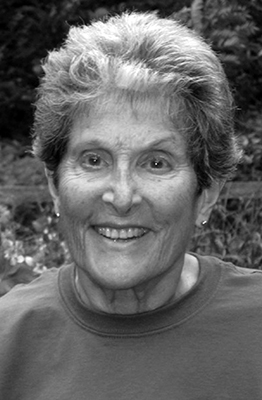Long-Honored Poet Maxine Kumin, Dead at 88
February 10, 2014
 Maxine Kumin, winner of the Pulitzer Prize in 1973 for her poetry collection, Up Country, died on February 6 at her home in New Hampshire. She was 88 years old. She served as consultant in poetry to the Library of Congress, what we now call the post of U.S. Poet Laureate, from 1981 to ’82. The New York Times wrote that Kumin “was praised by critics for her keen ear for the aural character of verse—the clash and cadence of meter, the ebb and flow of rhyme—and her naturalist’s eye for minute observation.” She authored almost twenty books of poetry, as well as essays, novels, short stories, and children’s books. What is to be her final collection of poems, And Short the Season, will see publication this spring.
Maxine Kumin, winner of the Pulitzer Prize in 1973 for her poetry collection, Up Country, died on February 6 at her home in New Hampshire. She was 88 years old. She served as consultant in poetry to the Library of Congress, what we now call the post of U.S. Poet Laureate, from 1981 to ’82. The New York Times wrote that Kumin “was praised by critics for her keen ear for the aural character of verse—the clash and cadence of meter, the ebb and flow of rhyme—and her naturalist’s eye for minute observation.” She authored almost twenty books of poetry, as well as essays, novels, short stories, and children’s books. What is to be her final collection of poems, And Short the Season, will see publication this spring.
“[She] had a fantastic urge to make and create despite terrible pain,” said Donald Hall, likely referring to a horse-riding incident Kumin suffered in the late ’90s that led to a long, difficult recovery, and also, perhaps, to some of her most powerful writing. “The poems are very clean. They’re hard-edged. They’re looking outward toward the world.”
A close friend of the poet Anne Sexton, and a contemporary of Adrienne Rich, Robert Lowell, and Sylvia Plath, Kumin’s work dealt with personal experience and life at home. The Times wrote she was a strong feminist, a writer of the “fragile yet reassuringly durable balance in which connection, rupture and continuity find themselves arranged,” though she was scarcely as overtly political as Adrienne Rich and did not write with the “lush emotionalism” of her other confessionalist cohorts.
“Maxine lasted the longest of that generation,” said Don Share, editor of Poetry magazine. “In a way, I think the trajectory of her work was saner and healthier. She had moral courage and personal courage and physical courage. It was quite remarkable. And she had a twinkle in her eye that could kindle into a brushfire.”
Poet Chard deNiord describes her style thusly: “She loved slant rhyme, she loved the music of the iambic line, and she made it work in a way that was resonant and enduring because of her fine ear, but also because of her willingness to write about subject matter that was really considered quite taboo. She made it her own music… [e]verybody would recognize a Kumin line.”
Kumin was New Hampshire’s poet laureate from 1989 to 1994 and recipient of the Poetry Foundation’s Ruth Lilly Poetry Prize in 1999, and she was honored with a Harvard Arts Medal in 2005. She famously resigned, with poet Carolyn Kizer, as chancellor of the Academy of American Poets in 1998 as protest to the Academy’s lack of women and minority-group members in its leadership. Read excerpts of Maxine Kumin’s work as well as more in-depth biography here and here.
Photo credit: Susannah Colt.
